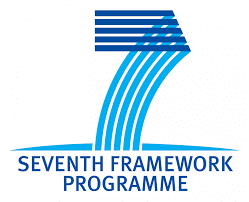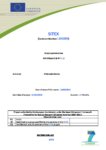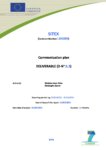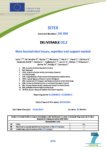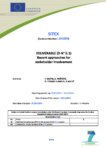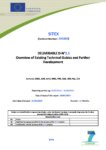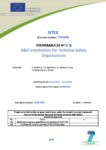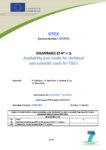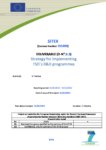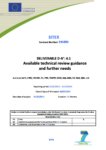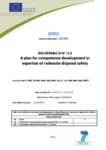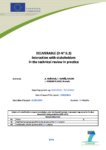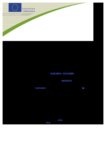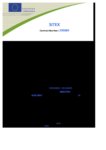SITEX: Sustainable network of Independent Technical EXpertise for radioactive waste disposal
SITEX was a two-year project that aimed to establish and develop expertise among technical safety experts, and through this, support independent regulatory reviews of geological disposal safety at national levels. Attention was also paid to harmonising the policies and programmes among regulatory authorities, technical support organisations and waste management organisations.
Overview
Project Dates: 1/01/2012 – 31/12/2013
Project Status: Finished
Project Website: sitexproject.eu
The primary focus of the SITEX project was to characterise the scientific and technical expertise needed to support independent regulatory reviews of geological disposal safety at national levels. This support was described as an “expertise function”, which interacts with three other functions, carried out by actors in the decision-making process. The three other functions were the Regulatory function, Implementation function and Civil Society function. A secondary focus was to identify the conditions required to establish an international network for harmonising European approaches to implementation of the “expertise function” in relation to geological disposal of radioactive waste at a national level, and thus support national nuclear authorities. The SITEX project brought together 15 organisations representing technical support organisations and safety authorities as well as Civil Society outreach specialists during its two-year duration.
An important challenge for the SITEX project was to propose approaches for closer interactions between civil society and implementers. This was necessary as such interaction enhances mutual understanding of key safety concerns without jeopardising the conditions required for developing and maintaining independent skills, competencies and analytical tools, independently from the implementers and other stakeholders.
The SITEX project highlighted the different needs and missions of the national “expertise function” along the decision-making process in relation to:
- safety case regulatory review;
- implementation of research in safety;
- training of experts in charge of regulatory review; and
- interaction with civil society.
Regarding these different tasks, the SITEX project identified potential areas of cooperation as well as resource sharing and exchange that could be developed by a future SITEX network. These opportunities were further developed as “Terms of Reference of the SITEX Network”. These terms of reference present a framework for programming, implementing and harmonising, at an international level, the tasks required by the national “expertise function” to support regulatory review.
Objective
The SITEX project aimed to identify the best approach to the establishment of a sustainable expertise function network within a European framework, and from this:
- Allow for mutual understanding between regulatory bodies, technical support organisations and waste management organisations on (i) the regulatory expectations at decision hold points and (ii) how the scientific and technical elements carried out by waste management organisations comply with these expectations. Following this perspective, the need for clarification of existing regulatory guidance or development of new guidance was addressed.
- Co-ordinate or work with waste management organisations in their research programmes. In addition, define technical support organisations’ research and development programmes such that it would ensure their independent capabilities for reviewing the Safety Cases and scientific arguments of the waste management organisations. It was found that research and development programmes and priorities of technical support organisations could be addressed through close interaction with the IGD-TP and undertaking joint research activities with waste management organisations in order to foster common understanding of key technical safety points and avoid undue duplication.
- Ensure the competence building of experts in charge of technical reviews and ensure transfer of knowledge on waste safety and radiation protection. This addressed the needs for guidance development, harmonisation of technical review activity and dedicated training and tutoring aimed at spreading expertise that focused on culture and practices.
- Promote sharing between various stakeholders, where needed, in a manner that is more integrated than when only communication and/or dissemination are envisaged. A review of past actions and learning related to the involvement of stakeholders in the technical review process was discussed.


